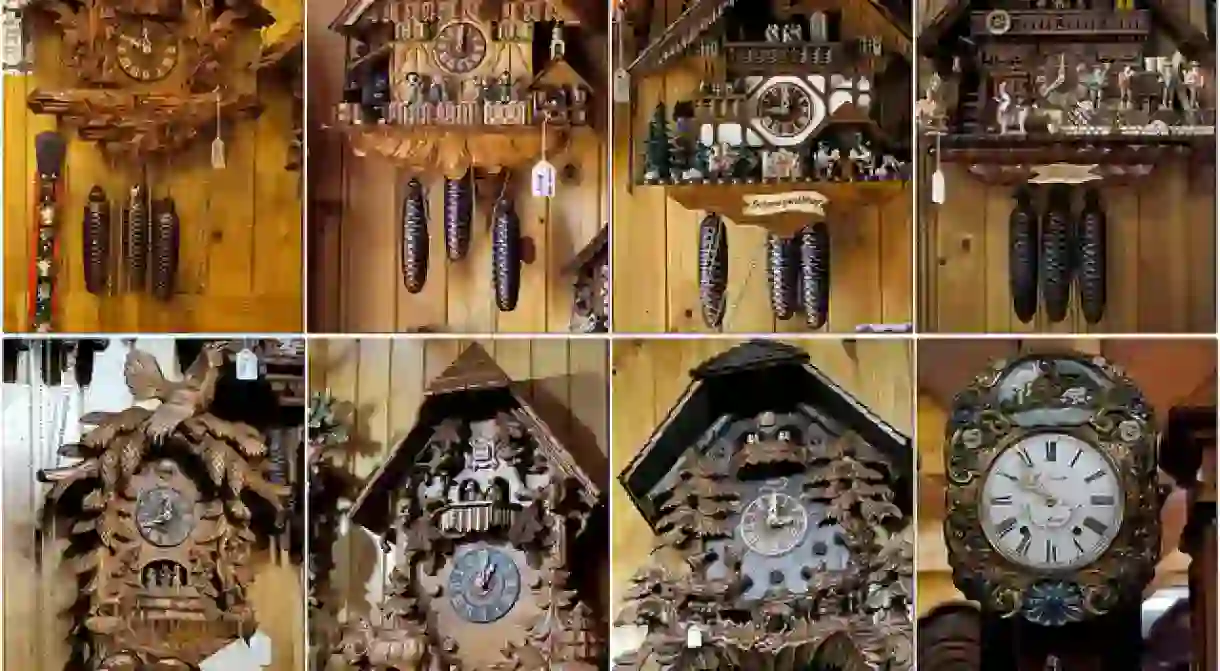Germany's Dazzling Clock Museum

The Black Forest region of Germany is distinguished by its delicious Black Forest cake and its cuckoo clocks. The German Clock Museum, or Deutsches Uhrenmuseum, is situated in Furtwangen, a town in Black Forest. It is the largest town in the German state of Baden-Württemberg and is renowned for its clock making tradition. The following is an overview of the German Clock Museum, which reveals the history, art, and technology of clock-making and the concept of timekeeping in the Western world.

History and Development:
Back in the 18th and 19th centuries, the Black Forest provided the world with inexpensive clocks. Robert Gerwig, Director of the Clock-making School in Furtwangen, started to collect old clocks as pieces of traditional handicraft in 1852. From 1858 till 1959, there were exhibitions of 1,000 clocks under the name of the ‘Historical Clock Collection.’ The state of Baden-Württemberg renamed it the German Clock Museum in 1978 with addition of pocket watches and Renaissance clocks. The present museum building was opened in 1992, and now it is part of Furtwangen University.
The German Clock Museum is dedicated to the history of timepiece devices, with a focus on the clock-making tradition in Black Forest. It exhibits a wide range of clocks and artifacts of Horology from all over the world, from prehistory to the present day. The collection contains cuckoo clocks from the 18th century and also samples of modern Black Forest souvenirs. The collection of Robert Gerwig is the primary basis of the museum.

Almost 1,000 personal guided tours are booked per year, during which visitors can interact with clocks and musical instruments. Children are offered the opportunity to make and decorate a clock in the clock workshop. The tour is divided into following themes: History of Clocks and Time up to Industrialization; Black Forest Clocks; Pocket Watches and Wristwatches; Modern Times; and Mechanical Musical Instruments.
It also offers themed workshops for schools; many are organized in accordance with the education syllabus. There is no entrance fee for the students of Furtwangen University.
The German Clock Museum was conferred as an ‘anchor point’ on the European Route of Industrial Heritage in 2008. The same year the museum announced the German Clock Road, which links the region associated with clock making, as a cultural landmark.

Exhibitions:
The German Clock Museum organizes temporary and permanent exhibitions of various kind of clocks: a Stone Age calendar, simple kitchen timers, a Baroque altar clock, a time-punch machine, an atomic clock, the first radio-controlled wristwatch, cuckoo clocks, tower clocks, and many more. It has had a permanent exhibition since 2010, 1,400 square meters in area, detailing the development of clocks and other timepieces and the concept of timekeeping itself. The museums distinguishes itself by displaying not only timepieces but also other related instruments of clock making.
By Amna Asharf













